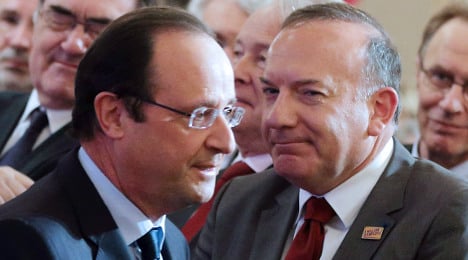Hollande has made efforts in recent months to appease France’s business leaders, so he clearly did not appreciate the attack by Pierre Gattaz leader of bosses union MEDEF this week.
In an interview with right leaning newspaper Le Figaro Gattaz, who has been an outspoken critic of the socialist government, described the “disastrous” state of the French economy.
“There’s no more investment or recruitment. What I see most among business leaders is a feeling of mistrust as they play a waiting-game. The economic situation is catastropohic,” Gattaz added.
The leader of Medef also called for Hollande to take symbolic measures like dropping the 75 percent tax and the France’s flagship 35-hour week.
Hollande was clearly aggrieved by the broadside from someone, who many on the left have accused him of pandering to, as he attempts to cut employment and the drag the economy of its feet.
The president’s much heralded Responsibility Pact, which will cut weighty payroll charges for companies by €30 billion in return for a recruitment drive was in response to concerns raised by the likes of Gattaz.
As Le Monde newspaper points out the Medef leader has been an outspoken supporter of the pact, which could partly explain Hollande’s angry reaction this week.
“It’s not the first time he has made these kind of declarations,” the president told journalists this week. “You’d like to ask what exactly is he trying to achieve?
“If you signed the Responsibility Pact, it’s because you believe it’s heading in the right direction. If you say it will have no effect on France, how are you going to give confidence back to French businesses,” Hollande said.
“His language is a problem and it has to change,” said Hollande who warned Gattaz that his outbursts could have economic consequences for France.
Gattaz has said that Medef will present a dozen new measures this summer to boost employment in France. He may have damaged his chances of Hollande and his government taking notice of them however.



 Please whitelist us to continue reading.
Please whitelist us to continue reading.
Member comments